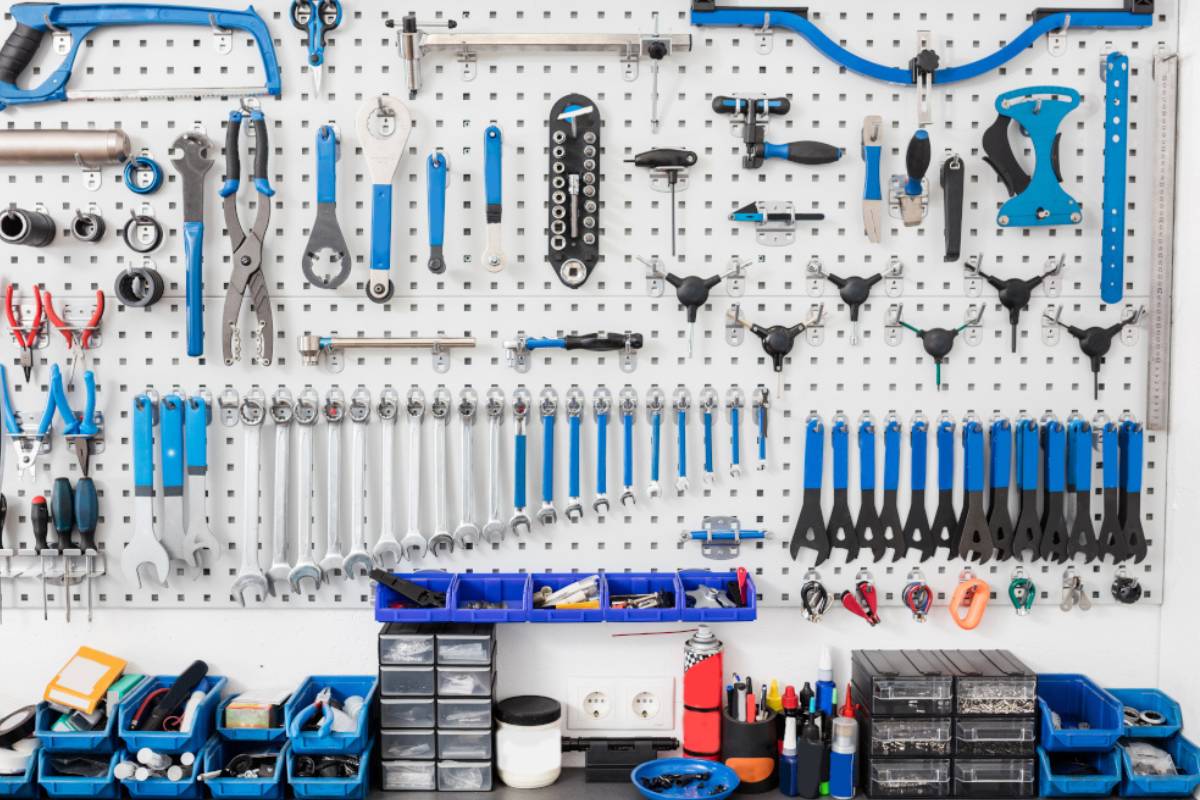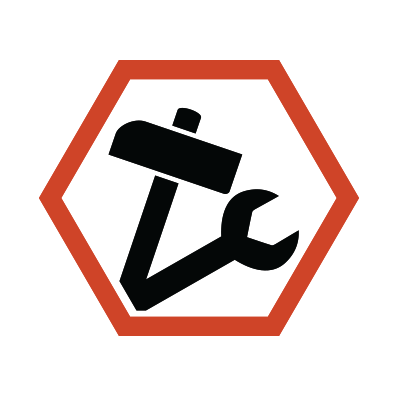Embarking on DIY automotive maintenance and repairs can be both fulfilling and cost-effective. However, to ensure success, having the appropriate tools readily available is paramount. Whether you’re a novice enthusiast or a seasoned DIY mechanic, a well-equipped garage serves as the cornerstone of your automotive endeavours.
This article aims to serve as a helpful guide, outlining essential tools necessary for every DIY mechanic’s garage, including wrench sets, socket sets, jacks, and more. It’s important to note that while these tools can empower you to tackle various automotive tasks if you’re unsure or lack experience, it’s always advisable to seek assistance from a qualified automotive mechanic to avoid potential mishaps or damage to your vehicle.
Wrench Sets
Wrenches are the backbone of any mechanic’s toolkit, offering the ability to tighten and loosen nuts and bolts with precision. When it comes to wrench sets, investing in quality is paramount. A well-made set will withstand the rigours of regular use and provide reliable performance for years to come. Look for wrench sets that include both metric and standard sizes to cover a broad spectrum of applications, ensuring compatibility with various fasteners commonly found in automotive systems.
Among the types of wrenches available, combination wrenches stand out for their versatility. Featuring an open-end on one side and a box-end on the other, combination wrenches enable mechanics to tackle tasks with ease. Whether you’re loosening a stubborn bolt or tightening a nut in a confined space, these wrenches offer the flexibility and grip needed to get the job done efficiently.
In addition to combination wrenches, consider adding adjustable wrenches and torque wrenches to your collection. Adjustable wrenches allow for quick and easy adjustment to fit different bolt sizes, making them ideal for situations where a specific-sized wrench may not be available.
Conversely, torque wrenches are crucial for tasks that need exact tightening to meet manufacturer specifications, such as when fitting cylinder head bolts or wheel lug nuts. By applying the correct amount of torque, torque wrenches help prevent overtightening or under-tightening, minimising the risk of damage to components and ensuring optimal performance.
Socket Sets
Socket sets are indispensable for DIY mechanics, offering a versatile solution for a wide range of automotive tasks. From removing spark plugs to loosening lug nuts, sockets provide the grip and leverage needed to tackle even the toughest fasteners. When selecting a socket set, opt for a comprehensive kit that includes various sizes and types of sockets, as well as ratchets and extensions for reaching tight spaces.
A key consideration when choosing a socket set is the inclusion of both shallow and deep sockets. Shallow sockets are ideal for accessing fasteners in tight spaces where clearance is limited, while deep sockets are designed to accommodate longer bolts and studs. Having both types of sockets on hand ensures you’re equipped to handle a variety of bolt lengths and configurations commonly encountered in automotive repair.
Furthermore, look for socket sets with both metric and standard measurements to ensure compatibility with a wide range of fasteners. While many modern vehicles utilise metric fasteners, older models and certain components may still use standard (imperial) measurements. By having a socket set that covers both measurement systems, you’ll be prepared for any maintenance or repair task that comes your way, regardless of the vehicle or part involved.
Jacks and Jack Stands
When it comes to working on your vehicle, safety should always be a top priority. A reliable jack is an essential tool for lifting your vehicle off the ground safely during maintenance and repair procedures. Hydraulic floor jacks are popular choices among DIY mechanics due to their ease of use and robust lifting capacity. However, it’s crucial to select a jack with a weight capacity that is appropriate for your vehicle. Consult your vehicle’s owner’s manual or manufacturer specifications to determine the maximum weight your jack needs to support.
Equally important are jack stands, which provide essential support once the vehicle is lifted. Never rely solely on a jack to support your vehicle while you work underneath it; always use jack stands as a secondary safety measure. Position the jack stands securely under the vehicle’s frame or designated lifting points before lowering the vehicle onto them. This ensures stability and minimises the risk of the vehicle slipping or falling while you work.
When choosing jack stands, opt for models with a weight capacity that exceeds the total weight of your vehicle. Adjustable height settings allow you to position the stands at the appropriate height for your specific task, whether you’re working on the engine, exhaust system, or suspension components. Additionally, look for jack stands with a sturdy construction and a wide base for maximum stability.
Screwdrivers
Screwdrivers are among the most versatile tools in a mechanic’s arsenal, used for a variety of tasks ranging from removing interior panels to tightening screws and fasteners. A well-rounded set of screwdrivers is essential for tackling automotive maintenance and repair jobs effectively. When assembling your screwdriver toolkit, prioritise acquiring both flathead and Phillips-head screwdrivers in various sizes to accommodate different screw types and sizes commonly found in vehicles.
Flathead screwdrivers feature a flat, wedge-shaped tip that fits into slots on flathead screws, while Phillips-head screwdrivers have a cross-shaped tip designed to engage with Phillips-head screws. Having multiple sizes of each type ensures you’ll always have the right tool for the job, whether you’re working on engine components, electrical systems, or interior trim.
In addition to flathead and Phillips-head screwdrivers, consider acquiring specialty screwdrivers for specific automotive applications. Torx and hex drivers, for example, are commonly used for removing bolts and screws with corresponding hexagonal or star-shaped heads. Including these specialty screwdrivers in your toolkit ensures you’re prepared for a wide range of maintenance and repair tasks, from routine oil changes to more complex engine repairs.
Pliers and Vice Grips
Pliers and vice grips are indispensable tools for any DIY mechanic, offering the versatility to grip, twist, and bend materials in tight spaces. Among the various types available, needle-nose pliers stand out for their ability to reach into narrow areas and grasp small components with precision. Whether you’re navigating intricate wiring or extracting a stubborn clip, needle-nose pliers provide the dexterity and control needed to get the job done.
Locking pliers, commonly known as vice grips, are another essential addition to your toolkit. These innovative tools feature an adjustable locking mechanism that allows them to clamp securely onto fasteners, pipes, and other objects. Whether you’re loosening a rusted bolt or holding a piece in place while you work, locking pliers provide a reliable grip that helps prevent slippage and minimises the risk of injury.
In addition to needle-nose pliers and locking pliers, consider adding a set of diagonal-cutting pliers and slip-joint pliers to your toolbox for added versatility. Diagonal-cutting pliers, also known as wire cutters, are ideal for snipping wires and cables cleanly and precisely. Slip-joint pliers feature adjustable jaws that can be configured for gripping various sizes of nuts, bolts, and pipes, making them invaluable for a wide range of automotive tasks.
Oil Filter Wrench
Performing an oil change is a routine maintenance task that requires the right tools for the job, and an oil filter wrench is essential for ensuring a smooth and efficient process. Designed specifically for removing and replacing oil filters, these specialised wrenches come in various shapes and sizes to accommodate different filter types and sizes.
When selecting an oil filter wrench, choose one that fits snugly around your vehicle’s oil filter to ensure a secure grip and prevent slippage during removal. Some oil filter wrenches feature adjustable bands or straps that can be tightened around the filter, while others have teeth or gripping mechanisms that engage with the filter housing for added stability. By investing in a high-quality oil filter wrench, you’ll make quick work of this essential maintenance task and help ensure proper engine lubrication and performance.
Work Light
Good visibility is essential when working on your vehicle, especially in dimly lit garages or undercarriage areas where shadows and obscured areas can make tasks challenging. A portable work light with adjustable brightness and positioning options is a valuable addition to any mechanic’s toolkit, illuminating your workspace and providing clear visibility of components, fasteners, and fluid levels.
Look for a work light with adjustable brightness settings to tailor the illumination to your specific needs and preferences. Flexible positioning options, such as magnetic bases or swivel mounts, allow you to direct the light where it’s needed most, whether you’re inspecting the underside of the vehicle or working in the engine bay. With a reliable work light by your side, you’ll be able to spot leaks, inspect components, and perform repairs with precision and confidence, even in challenging lighting conditions.
Equipping your garage with the essential tools outlined in this article sets you up for success as a DIY mechanic. By investing in high-quality tools and maintaining them properly, you’ll be prepared to tackle a wide range of automotive maintenance and repair tasks with confidence. Whether you’re performing basic oil changes or more advanced repairs, having the right tools at your disposal makes all the difference in achieving professional-quality results from the comfort of your own garage.







Leave a Reply